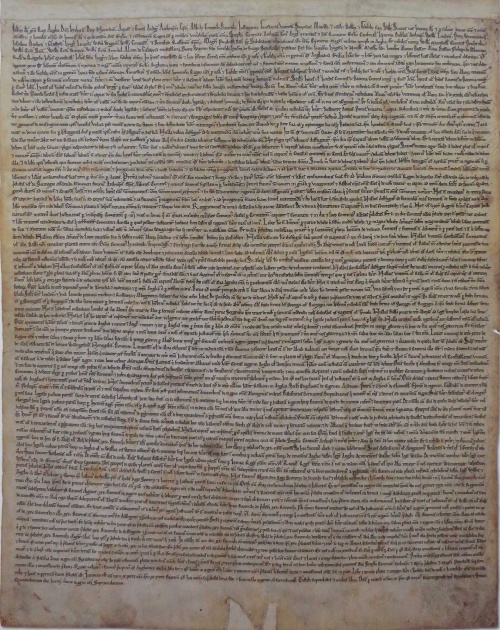Important Documents in History
Contents
Background
"The ideals underpinning the Eureka uprising may be traced back as early as the Magna Carta of 1215 – meaning ‘The Great Charter’ – which began as a list of grievances recorded by the free men of England against the despotic rule of King John. The document has since become an international symbol of liberty and its sentiments were echoed in later landmark documents, including the United States Declaration of Independence (1776), Universal Declaration of Human Rights (1948) and importantly, the Ballarat Reform League Charter (1854), which epitomises the Eureka rebellion. The events at Eureka were also influenced by the ideas and experiences that gold seekers from all over the world brought with them to the central Victorian goldfields, leading them to challenge the unfair system they found themselves in. Some of these people had witnessed the revolutionary wave that swept across Europe in 1848, where social unrest, political instability and revolt had spurred socio-political movements seeking to create better societies. These diverse and daring ideas about freedom, utopian societies and law and order that many gold migrants brought with them, helped create the environment within which the Eureka rebellion thrived."[1]
Domesday Book
Magna Carta
Issued by King John of England who reigned 1199 to 1216, the Magna Carta is one of the most famous documents in the world. The Domesday Book had been created in England before the Magna Carta, but the Domesday was more or less a census of the lands that had been conquered by the Normans from France. The Magna Carta however was established and for the first time, the idea that everyone was subject to the law, even the King and his followers. The Magna Carta was established in 1215 as a practical solution to the political crisis faced by King John. It remains the cornerstone of the British Constitution. Fundamental values put forward in the Magna Carta resonate with democratic principles today. The 39th Clause gave all 'free men' the right to justice and a fair trial. Some of the democratic principles put forward in the Magna Carta are reflected in the American Declaration of Independence (1776) and Bill of Rights (1791), the Universal Declaration of Human Rights (1948) and the European Convention on Human Rights (1950).[2]

